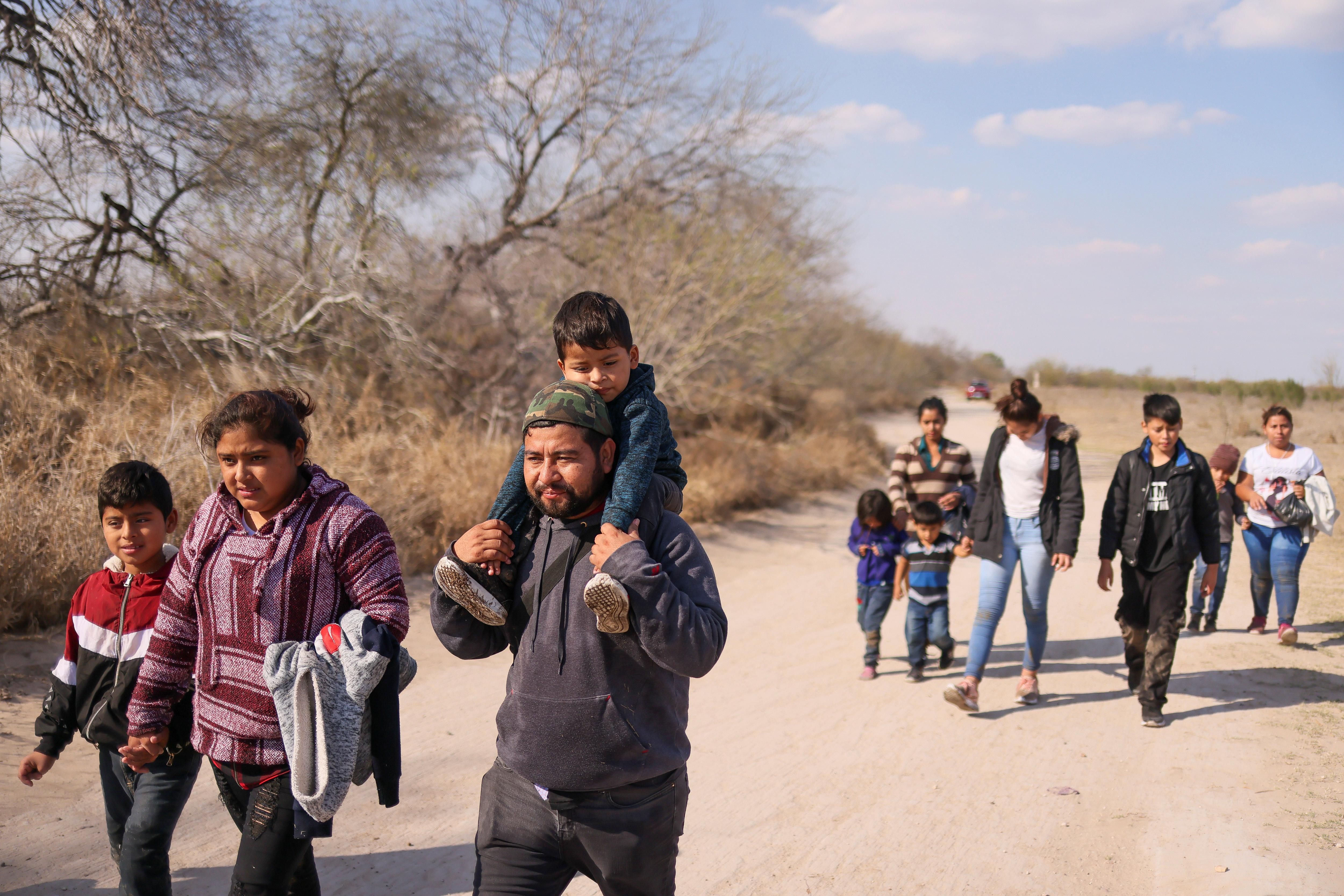Immigrants flock to the US-Mexico border: President Biden has already undone many of the Trump administration's harsh immigration programs, saying that he is ushering in more "humane" policies. Since then, an influx of migrants mainly from Central America has flocked to the US-Mexico border in the hopes of seeking asylum in the United States. The number of children and families reaching the border increased by more than 100 percent between January and February 2021, according to US Customs and Border Protection. Importantly, the number of children arriving on their own has also surged 60 percent in that time, presenting a particular challenge for the US president, who campaigned heavily against Trump's policy of detaining unaccompanied minors. The Biden administration says that the recent surge is linked to a renewed sense of "hope" after Trump's hardline immigration stance, but this development puts Biden in a massive bind: he wants to stay true to his image as a humane and compassionate leader, while also not opening the floodgates on immigration — still a hot button issue in the United States. Indeed, this problem is only going to get worse in the months ahead.
"Illiberals" vs EU: EU member states Hungary and Poland have filed a petition with the European Court of Justice over the bloc's budget provision that conditions disbursement of funds on respect for the "rule of law" within member states. The provision, which is baked into the EU's 2021-2027 budget as well as the 750 billion euro pandemic relief package passed last summer, has irked Budapest and Warsaw, who argue that doling out the cash should be linked solely to meeting key economic objectives and fiscal rules. For years, Hungary's Prime Minister Viktor Orbán, who often boasts of his country's "illiberal democracy," has been at loggerheads with the EU over his attacks on the independent judiciary and stifling of the media. Meanwhile, Polish President Andrzej Duda and his ruling Law and Justice Party have also clashed with Brussels over the conservative Polish government's erosion of democratic principles and discrimination against the LGBTQ community. The complaint now makes its way through the courts, a process that could take up to two years — delaying the disbursement of some funds that desperate Europeans need as the continent continues to grapple with a rising caseload and a sluggish vaccine drive.
China "fixes" Hong Kong elections: China's rubber-stamp parliament approved on Thursday the ruling Communist Party's plan to reduce the number of Hong Kong lawmakers elected by the public and replace them with appointees picked by a pro-Beijing committee. This means that more members of the city's legislature will now be chosen by the Chinese politburo than by Hong Kong voters. China's National People's Congress also consented to a rule requiring all aspiring lawmakers to pledge their loyalty to China in order to qualify as candidates under Beijing's draconian national security law. We've said this before, but Hong Kong democracy is effectively over since it'll be impossible for the pro-democracy bloc to ever win control of the territory's legislative council. Interestingly, the two proposals were backed by 2,985 members of the National People's Congress with zero votes against... and one (gasp!) abstention. We now expect to see the usual strong-worded condemnations from democratic governments around the world, which are likely to be met with the usual eye-rolls in China.
Soaring plastic bricks: Sales of Lego's colorful plastic bricks jumped nearly 20 percent in 2020. Kids trapped at home by the pandemic need something to do, and many parents want their diversions to be less digital and more imaginative. Fun bonus fact: many adults play with Lego sets too. #ThankYouDenmark.More For You
For China, hitting its annual growth target is as much a political victory as an economic one. It is proof that Beijing can weather slowing global demand, a slumping housing sector, and mounting pressure from Washington.
Most Popular
30,000: The estimated death toll in Iran during the protests at the start of the year, per local health officials, underscoring the scale of the Islamic Republic’s crackdown on its own citizens.
Seventy-eight years after helping found the World Health Organization (WHO), the United States has formally withdrawn from the agency, following through on a pledge President Donald Trump made on his first day back in office.
Mastercard Economic Institute's Outlook 2026 explores the forces redefining global business. Tariffs, technology, and transformation define an adaptive economy for the year ahead. Expect moderate growth amid easing inflation, evolving fiscal policies, and rapid AI adoption, driving productivity. Digital transformation for SMEs and shifts in trade and consumer behavior will shape strategies worldwide. Stay ahead with insights to help navigate complexity and seize emerging opportunities. Learn more here.
